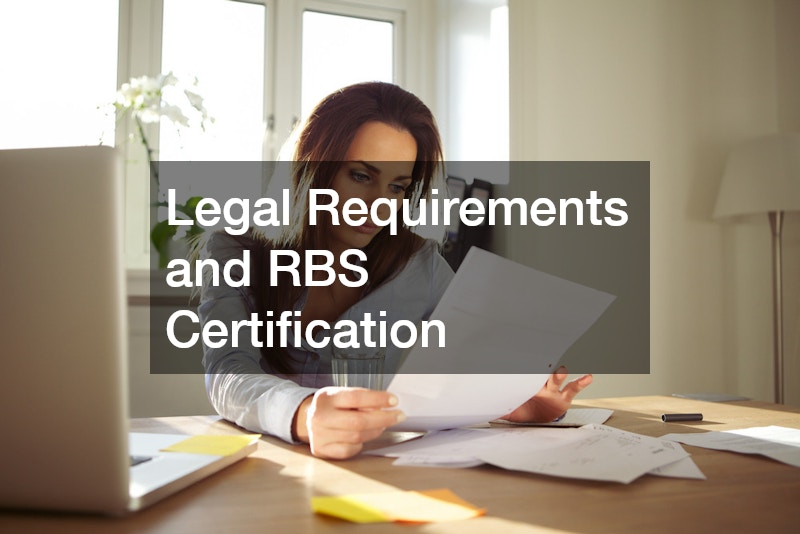
RBS certification, a crucial credential in the hospitality industry, stands for Responsible Beverage Service certification. This certification is designed to ensure that individuals serving alcohol can do so responsibly and with awareness of the legal requirements. It is a vital requirement for anyone who wishes to pursue a career involving the sale or service of alcoholic beverages.
The importance of RBS certification cannot be overstated, as it serves as both a professional credential and a safeguard for establishments serving alcohol. Obtaining this certification demonstrates a commitment to responsible alcohol service, reducing the risk of over-serving and its potential consequences.
By mandating RBS certification, states aim to minimize alcohol-related incidents and promote a safe drinking environment.
The Benefits of Obtaining RBS Certification
One of the primary benefits of obtaining RBS certification is the significant enhancement of professional qualifications. Individuals who are certified are often more attractive to employers, as they bring a recognized level of expertise in alcohol service. This certification can open doors to employment opportunities in a variety of settings, from fine dining establishments to local pubs.
Another critical benefit is the ability to contribute to the safety and well-being of patrons and the general public. By understanding the principles of responsible beverage service, certified individuals can take proactive steps to prevent overconsumption and its potential consequences. This proactive approach not only protects customers but also helps to maintain the establishment’s reputation and compliance with local laws.
For businesses, having RBS-certified employees implies a certain standard of professionalism, reducing liability and insurance costs. Establishments with RBS-certified staff are viewed more favorably by insurers, which can lead to more favorable premiums. Ultimately, RBS certification benefits both individual professionals and the businesses that employ them by fostering a culture of responsibility and safety.
The Process of Obtaining RBS Certification
The process of obtaining RBS certification typically involves completing a state-approved training program. This training covers essential topics such as the effects of alcohol on the human body, the legal responsibilities of servers, and methods to ensure patrons consume alcohol responsibly. Many programs also include training on recognizing signs of intoxication and handling difficult situations with patrons.
After completing the RBS training, individuals must pass a certification exam to demonstrate their understanding of the material. This exam tests the knowledge gained during training, ensuring that certification holders are well-prepared for the challenges of alcohol service. Upon passing the exam, individuals receive their RBS certification, which must often be renewed periodically to remain valid.
The cost and duration of the training can vary depending on the state and provider, but the investment is worthwhile given the benefits provided. Online training options are available, providing flexibility for individuals to complete the course at their own pace. This flexibility makes it easier for working professionals to obtain or renew their RBS certification without interrupting their current employment.
Legal Requirements and RBS Certification
In many states across the United States, RBS certification is a legal requirement for those serving alcoholic beverages. This certification ensures that servers understand and comply with state laws regarding alcohol service and sales. Compliance with RBS certification laws helps reduce the risks associated with alcohol consumption, such as accidents and legal liabilities.
Establishments that fail to ensure their staff possess RBS certification may face fines, penalties, or even loss of their liquor licenses. Therefore, understanding and complying with these legal requirements is crucial for both businesses and individual servers. For businesses, ensuring staff are RBS-certified demonstrates a commitment to lawful and responsible service practices.
The introduction of RBS certification laws reflects a growing awareness of the social and legal implications of alcohol service. As a result, more states are implementing mandatory RBS certification programs to enhance the safety and accountability of servers. Consequently, obtaining RBS certification is not only beneficial but often necessary for anyone pursuing a career in the hospitality industry.
Conclusion
RBS certification is an essential aspect of responsible alcohol service, with numerous benefits for individuals and businesses alike. Recognized for its role in enhancing public safety and professional qualifications, this certification is increasingly becoming a requirement in many states. By understanding the importance and process of obtaining RBS certification, individuals can better position themselves for a successful career in the hospitality industry.
This certification equips individuals with the knowledge and skills necessary to ensure a safe and enjoyable environment for patrons. As the landscape of alcohol service continues to evolve, RBS certification remains a critical tool for those dedicated to responsible practices. Embracing the principles of RBS certification not only meets legal requirements but also sets a standard of excellence for all involved in the service of alcohol.
.

